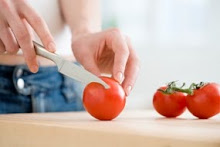A FRIEND OF MINE tells the story of an amazing salesperson who worked with him at a barbeque retailer. Barbeques are usually an emotional purchase for males. A man might struggle in the kitchen, but don't try to tell him that he can't master the barbeque.
If a man was to shop alone in this retail outlet, he might be afraid to come home with a large purchase (it's not easy to hide a barbeque), so he takes his wife along, for purchase approval. The wife's role is to keep the husband's desire to spend in check.
My friend's sales colleague knew how to play the game. He'd wait until a husband and wife approached a barbeque before starting any dialogue. After a minute or two, he'd approach and ask what the couple wanted in a barbeque.
The husband would say something like, "Just to cook sausages and steaks for family and friends". His wife would nod in agreement.
The salesman would then ask deeper questions like, "Have you ever roasted food on a barbeque before?"
"No," the husband would reply, looking at his wife. They were now curious, wondering how on earth you roast food on a barbeque. The salesman would show them where to place the baking tray, how to control the burners so that the heat would cook around the roasting meat; how adding hickory chips could give the meat a smokey flavour and how the hood had a temperature gauge. Next he pointed out a rotisserie, explaining how you could cook chickens just like the take-away shops. The husband was amazed, imagining the banquets he could create.
"Do you cook stir fries?" the salesman asked the wife. "Sure," she said.
Next, while the husband was still dreaming about chicken banquets, the salesman showed the wife how to use a wok in the side burner. When the husband snapped out of his little daydream, the wife was off in her own fantasy, dreaming about stir fries. While this was going on, the familiar smells of summer feasts-sausages, steaks, and onion-filled the air. (The store manager had allowed the local scout group to cook a barbeque in the foyer of the store to raise money.) The dreams became real, aided by the sense of smell and the sounds of a sizzling grill. The husband and wife were sold. They'd come in looking for a basic three burner barbeque, but walked away with four burners and all the extras too, including a roasting hood, rotisserie, side burner, cover and a bag of hickory chips.
It didn't end there. After he'd broken their defensive mechanisms and established their decision to buy, the salesman continued. "How will you clean your barbeque?" he asked.
"With warm soapy water I guess," the husband said.
The salesman stared back as if in shock, explaining, "Mate...cast iron plus soapy water equals rust."
"How can we avoid that?" the husband asked.
"Use a cleaning pack like this one," the salesman said.
Then out came a gas gauge for detecting gas bottle leaks and a bag of fat absorbers to reduce the number of fat fire flare ups.
The final docket read:
Barbeque $399.00
Roasting Hood $150.00
Rotisserie $49.99
Side Burner $149.99
Fat Absorber $7.99
Cleaning Pack $39.99
Gas Bottle $59.99
Gas $4.99
Gas Gauge $19.99
Hickory Chips $12.99
Total $894.92
On average this salesman led each couple to spend more than double the barbeque's base price on added value items.
How did all this come about?
The retailer trained their salespeople to ask deep questions about the total use of the barbeque. Poorly trained salespeople sell only the barbeque, assuming that it's all the customer wants. Most customers have an issue, problem or need they want solved. Asking deeper questions exposes what the customer is really after. In this case the husband wanted to show off a new toy and the wife wanted to be more involved in the barbeque experience. (Instead of being stuck in the kitchen preparing salads, she can now cook roasts and stir fries.)
The retailer packaged a total in-store experience including all the sounds, smells, and accessories of a real barbeque experience. This engages customers so much more than simply seeing a shiny new product.
Your business must find out your customers' needs and develop a package of solutions. At Harvey Norman, our computer store success came when we developed a one-stop shop where customers can buy all their computer hardware, software and peripherals.
If you sell home loans, your customer more than likely has a car loan, so why not offer service in that area as well? As long as it doesn't dilute your main offer, offer your channel additional value.
Papaya – For Health
15 years ago

No comments:
Post a Comment